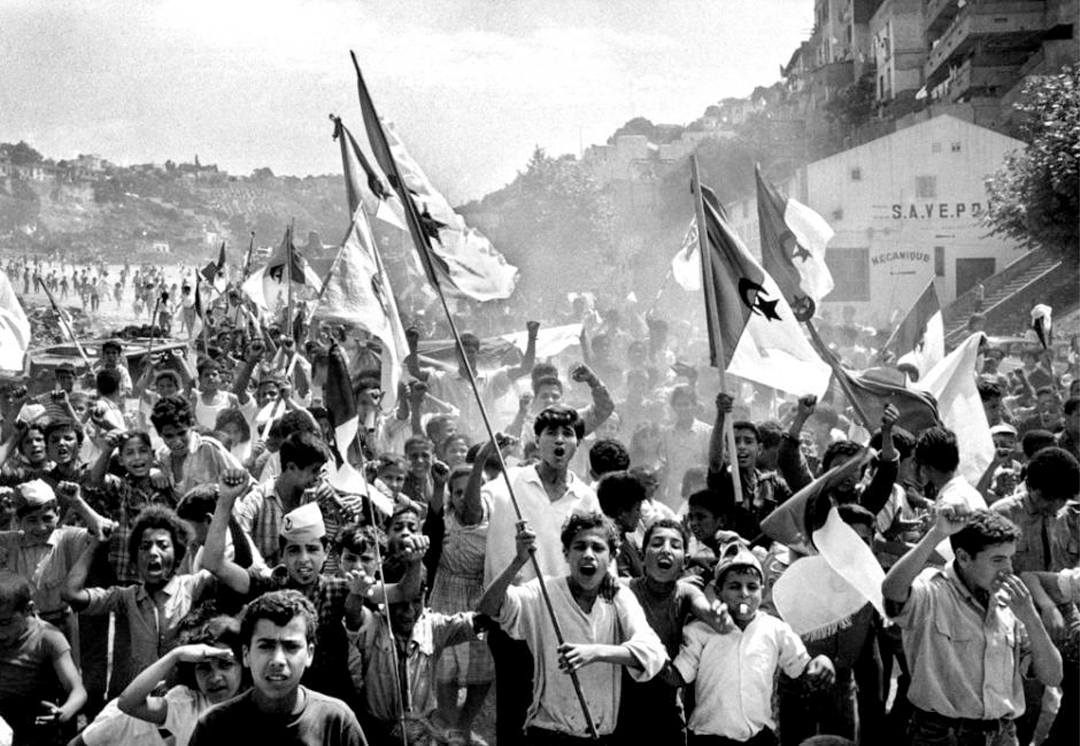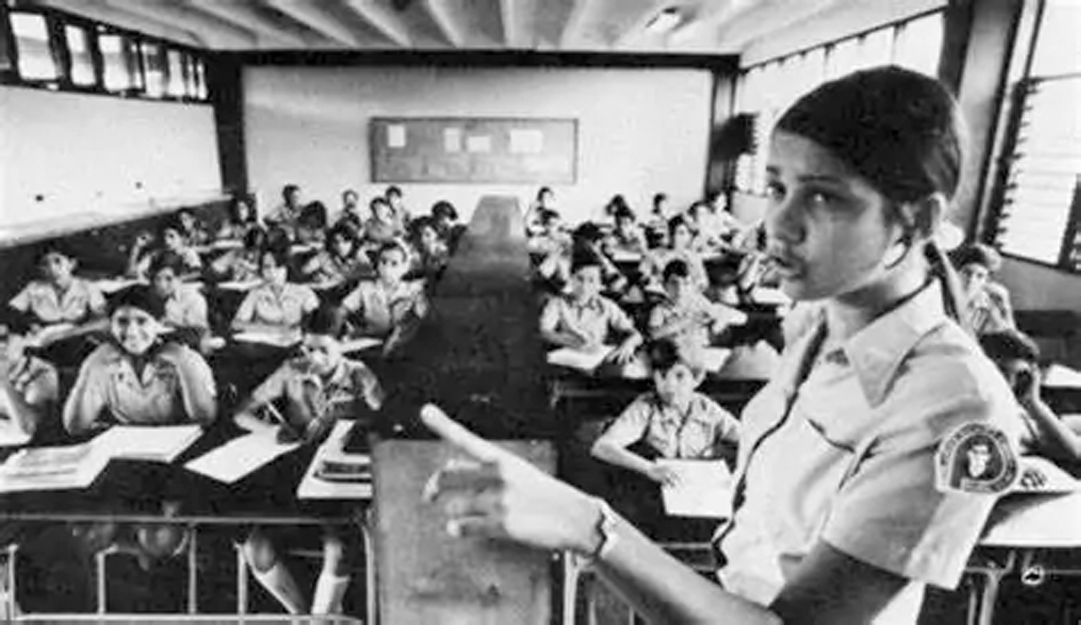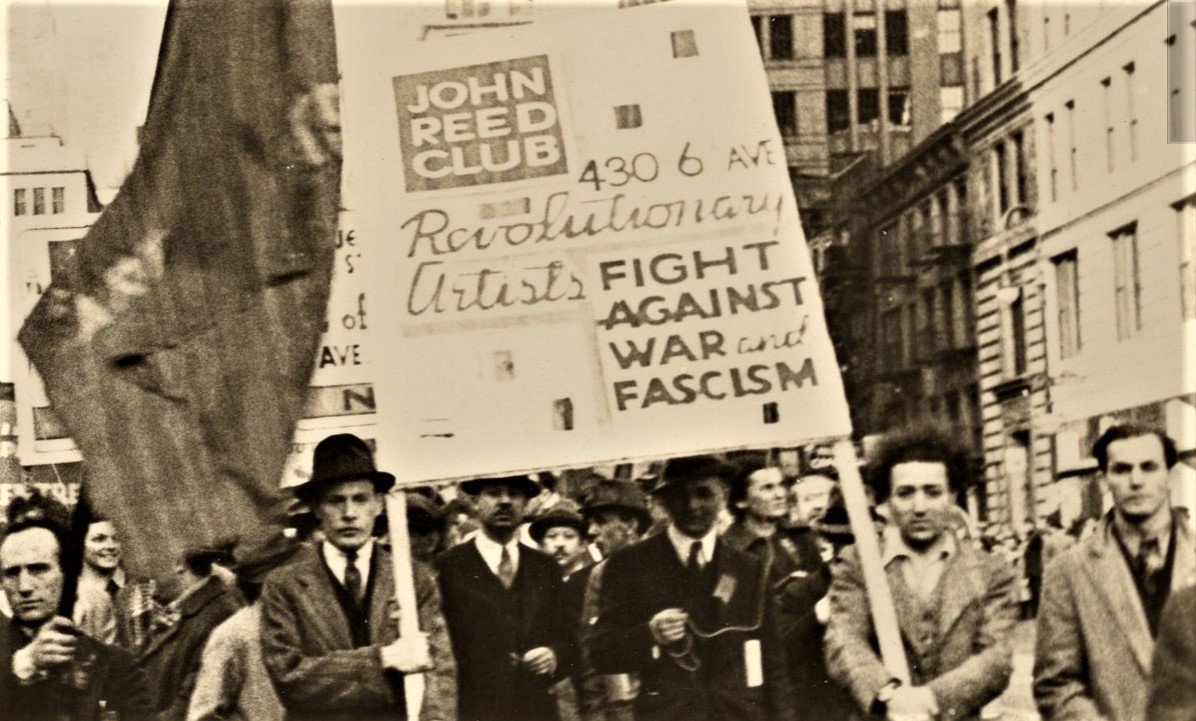SPARK! Organizing for Revolution
Module 1
The March of History
‘The philosophers have only interpreted the world, in various ways. The point, however, is to change it.’
-Karl Marx
We will begin our course by establishing our methodology for analysis and study. What are the historical processes that have shaped societies, and what lessons do they offer us for understanding our current path forward? How can we understand the movement of history, and how have revolutions and revolutionaries shaped them?
-

How We Study, How We Struggle
Why do revolutionaries study history and theory? How do we analyze society and our role within it? How do we understand the world to struggle effectively, with confidence and clarity? Why this course, and why now?
In this first session, we will develop our foundation, building our methodology and framework for analysis, and exploring why we study in the first place. As we identify and strengthen the essential theoretical tools and strategies we need to transform ourselves as organizers and as revolutionaries, we will build our practice of revolutionary study to take with us through the course, in the streets, and back to our organizations.
-

The Movement of History
“Capitalism comes dripping from head to toe, from every pore, with blood and dirt”
- Karl Marx
This session looks at the history of economic and social stages and transformation, situating capitalism as just one period in a long history and interrogating the processes that led to its dominance today. Just as the fall of one economic system gave way to the rise of a new one, we know that capitalism can and will fall, and we must understand its inherent contradictions and failures so that we are prepared to build a new system in its place.
-

Saturday Sessions: The Cultural Front
"Art must teach people, in the most vivid and imaginative ways possible, to take control over their own experience and observations [and] how to link these with the struggle for liberation and a just society free of race, class, and exploitation" - Dikobe wa Mogale
Across the world, revolutionary movements have understood art and culture as not only a powerful weapon for revolution, but central to social and economic transformation. How do we understand culture today as a key terrain to wage political struggle, and how can we build towards a socialist and internationalist culture. Join us this Saturday 7/13 for the first of the revolutionary summer school’s Saturday dialogues, Building the Cultural Front, where we will discuss these questions and more with Hannah Craig and Niki Franco, organizers with Artists Against Apartheid.
Module Reflection Questions
Module Terms
-
The bourgeois mode of commodity production, capitalism, is commodity production based on socialized means of production, the factory system and bourgeois private property, that is, the buying and selling of labor-power. Capitalism is competition between capitalists for customers, anarchy of production and competition between the laborers for wages. It is commodity production at its highest stage of development, where labor-power appears on the market as a commodity, bought and sold alongside every other commodity.
Two conditions are necessary for capitalist production: firstly, the concentration of the basic means of production as the private property of capitalists, and, secondly, the absence of means of production among the majority, or a considerable portion, of the members of society. This compels those who possess nothing but their capacity to work to become wage workers in capitalist enterprises in order to keep starvation from their door. -
Mode of production is the predominant way a society reproduces the things needed for its existence, growth and development.
In all forms of society there is one specific kind of production which predominates over the rest…a general illumination which battles all the other colors and modifies their particularity. - Karl Marx, The Grundrisse, 1857
Mode of production as two general components: the productive forces and the social relations of production. The unity and struggle, contradiction, between productive forces and the social relations of production, constitute the fundamental contradiction in every mode of production without exception.
-
Relations of production are the connections between people and property, that is, the ownership pattern, in the process of production. The ownership pattern determines the placement and role of classes – exploited and exploiters – in the process of production. The process of production consists of the division of labor, stage of development of technology, the level of deployed science and skills in shaping and defining the social organization of labor.
When productive forces and productive relations are compatible with one another, their interactivity causes more rapid development of the productive forces. The struggle between exploiting and exploited classes drives the mode of production through all its phases of development.
-
Means of production are one of the indispensable components of productive forces and embrace the nonhuman resources required for production, including land, raw materials, tools, machinery, energy source, and technology in production.
-
Exploitation and oppression are two sides of subjugation in class society. Exploitation is economic in its essence, and oppression is political. Exploitation is when one section of society owns the means of production, deploys labor in production and appropriates the surplus product. Exploitation can be measured, as Marx explained. The rate of surplus value expresses exploitation of labor by capital. Government and state, which carry out the will of the ruling class, are instruments of oppression.
Exploitation is impossible without oppression. Oppression is political subjugation and military domination of the exploited classes and strata in society. Exploitation and oppression refer to human relations and not machines. Robots cannot be exploited or politically oppressed.
-
“By proletariat [it is meant] the class of modern wage laborers who, having no means of production of their own, are reduced to selling their labor power in order to live" - Engels, 1889 English edition.
In the writings of Karl Marx and Frederick Engels, the new rising and developing class of workers, created by the industrial revolution, was the industrial working class, the proletariat. The word proletariat is a property designation, while the word ‘worker’ and ‘laborer’ are designations of placement within the division of labor. The slave laborer of antiquity was a worker but not a proletariat. The serf laborer of medievalism was a worker but not a proletariat. The modern proletarians are proletarian precisely because they do not own their own means of production and must sell their labor power for wages. -
The bourgeoisie is the capitalist class, the ruling class of capitalist society.
“By bourgeoisie it is meant the class of modern capitalists, owners of the means of social production and employers of wage labor. By proletariat, the class of modern wage laborers who, having no means of production of their own, are reduced to selling their labor-power in order to survive" - Note by F. Engels, 1888 Edition, Manifesto of the Communist Party
This French term originally described a class of property owners under feudalism. It initially described a class of freemen and intermediaries that existed as a middle class between the feudal lord and the serf. As society changed qualitatively, this section of the middle class under feudalism became the ruling capitalist class.
-
In the process of capitalist production, the laborers create a surplus of value that is more than the value paid to them as wages. The difference between the value paid to the workers as wages and the greater value the workers create is the source of surplus value. Surplus value is the name for the value that comes from the surplus products, created by the unpaid labor of the workers, and appropriated by the capitalists as profit.
The working day can be divided into two parts: paid labor time (necessary labor) and unpaid labor time (surplus labor) or, what is the same, necessary products and surplus products. The paid labor time of the workday creates an amount of products, which when sold pay the workers’ wages. The unpaid labor time pays for the building, energy cost, raw materials, and what is left is profits. The unpaid labor creates surplus products. They are called surplus products because they are products over and above what is paid to the workers as wages. When those products are sold and their value is returned to the capitalist, surplus value is realized. Human labor (not machines) is the source of surplus value.
Capitalist exploitation is defined as the power of capitalists to appropriate surplus products and realize an expanded value (surplus value) created by the working class.
-
The primitive accumulation of capital is a past historical phase in the formation of the capitalist system. Primitive accumulation is a historical phase in the formation of the bourgeois mode of commodity production, rather than every starting point for a new cycle of accumulation of capital.
“The so-called primitive accumulation, therefore, is nothing else than the historical process of divorcing the producer from the means of production. It appears as primitive, because it forms the pre-historic stage of capital and of the mode of production corresponding with it.
In the history of primitive accumulation, all revolutions are epoch-making that act as levers for the capitalist class in course of formation; but, above all, those moments when great masses of men are suddenly and forcibly torn from their means of subsistence, are hurled as free and ‘unattached’ proletarians on the labor-market. The expropriation of the agricultural producer, of the peasant, from the soil, is the basis of the whole process…
…hence, the historical movements which changes the producers into wage-workers appears, on the one hand, as their emancipation from serfdom and from the fetters of the guilts, and this side alone exists for our bourgeois historians. But, on the other hand, these new freedmen became sellers of themselves only after they had been robbed of all their own means of production, and of all the guarantees of existence afforded by the old feudal arrangements. And the history of this, their expropriation, is written in the annals of mankind in letters of blood and fire.” - [K. Marx, capital volume 1, 1867) -
A bourgeois philosophic trend and movement that claims that an ideology or proposition is true if it works satisfactorily, that the meaning of a proposition is to be found in the practical consequences of accepting it, and that “impractical” ideas are to be rejected.
Pragmatism rejects revolution as a practical solution to the plight of the proletariat, because pragmatism denies the existence of the law of development, which brings the capitalist factory system to its historical end. -
Idealism is the philosophical doctrine that holds that consciousness, thought, and spirit are primary and fundamental in reality, while matter, nature, and the physical are secondary, derived from and dependent upon consciousness for existence.
-
Materialism is a world outlook that holds that matter, nature and being are primary in relation to consciousness, thinking, and spirit, and that the world is knowable. For philosophic materialism, consciousness is human awareness rather than otherworldly universal consciousness or what animates plants and other forms of organic life.
The Materialist conception of history starts from the proposition that the production of the means to support human life and, next to production, the exchange of things produced, is the basis of all social structure; that in every society that has appeared in history, the manner in which wealth is distributed and society divided into classes or order is dependent upon what is produced, how it is produced, and how the products are exchanged. From this point of view, the final causes of all social changes and political revolutions are to be sought, not in men’s brains, not in men’s better insights into eternal truth and justice, but in changes in the modes of production and exchange.
-
Dialectics is a philosophical understanding of the world that recognizes that movement, change, continuity, and most of all the unity of opposites are central to understanding something. Contradiction, and the universality of contradiction, are the foundation of dialectics – dialectical thinking, or a dialectical understanding of something, recognizes that everything is made up of opposing, contradictory forces that drive its existence.
-
Dialectical materialism is a philosophic outlook created by Karl Marx and Fredrick Engels, and was born of the generalization of scientific achievement and humankind’s historical experience, which showed that social life and human consciousness arise from material relations, and like nature itself, are in a state of motion, change, transformation, and development, punctuated by leaps from one qualitative state to another.
-
Labor power is labor ability – the ability to work, the sum total of the mental, physical, and spiritual forces of the human, from which material wealth is produced.
-
The productive forces are the division of labor, energy sources, technologies, and the skills and knowledge to use the means of production in society during a distinct period of time. More generally, it is the combination of human labor power and the means of production of a given society
-
Wages are the money-price form of value paid to the workers by capitalists to purchase their labor power. The price paid for labor ability is always below the value created by the workers’ labor. The value created by the workers, but never returned to them, is the source of surplus value, the basis of capitalist profits.
Wages therefore are only a special name for the price of labor-power, and are usually called the price of labor; it is the special name for the price of this peculiar commodity, which has no other repository than human flesh and blood.
